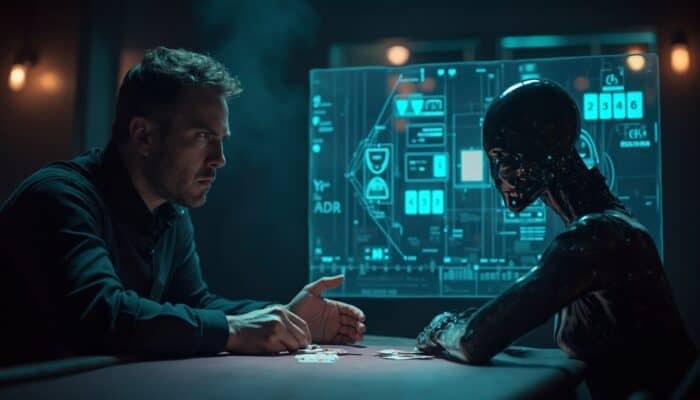AI poker has been making its incursion, with depth and guile as that fox in the henhouse, upon the world of cards. It is at this juncture and truthfully seated at the table, shuffling the deck, and dealing itself a winning hand. The mere idea might have Doyle Brunson rolling in his cowboy hat, but here we’re living, in a world where the best poker AI can outplay even the most battle-tested human pros without breaking a sweat—or really even having the capacity to sweat, for that matter.
AI Poker Research: The Game Changer We Never Asked For
In fact, poker AI work is one of those typical stories whereby “nobody asked for it, but here it comes anyway.” It all started harmlessly enough: all that these researchers wanted to see was whether they could teach a machine to play poker. But as in every great sci-fi movie involving world domination by evil robots, the AI not only did it learn the game, it mastered it.
How the poker AI development community, with all their brainiacs and game theorists, must have never envisioned such a thing-making up a table on humanity-would happen in this way: so expeditiously. But they did, and now it is time we are, well, tried by our own creations.
That’s a little bit like Dr. Frankenstein needing to teach his monster not to stomp on villagers, except this time the monster is a digital brain that can work out odds faster than you can say “all-in”. And then there are poker bots: these little digital demi-demons that can simply grind out wins day in and day out, no need to sleep or do anything aside from, from time to time, having an existential crisis.
Strategies Employed by Poker AI: Algorithms Mind-Bluffing
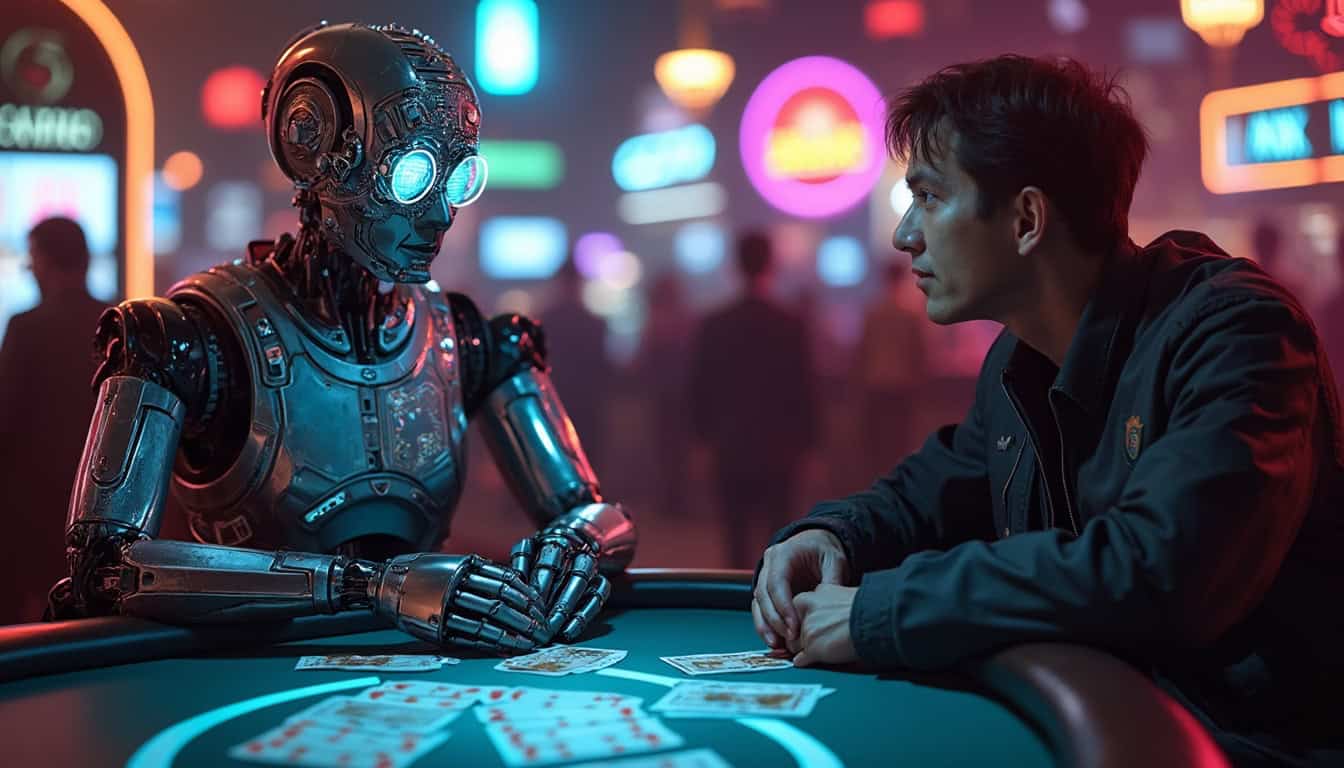
There is something just a little bit. poetic about the algorithms involved in poker AI. They are, in reality, perfect poker players: entirely unemotional, ruthless, not leaving anything to those bad beats that may upset them. But let us get to the real kicker: poker AI strategy. Not your taken-from-a-book, sitting-on-some-shelf-gathering-dust strategies, these guys help you wonder if there is still any fairness you can leave in the game. Imagine a player across the table who will never tire, never make mistakes, and get nothing from your bluff, just because he had already known. That’s playing chess against Deep Blue, but this time, Deep Blue has a poker face on, and it’s doing it well. The future of poker is no more about playing the cards but about outsmarting the algorithm.
And good luck with that—because while you’re trying to read a tell, the AI has already simulated a thousand possible outcomes.
Machine Learning in Poker: Algorithmic Hustle
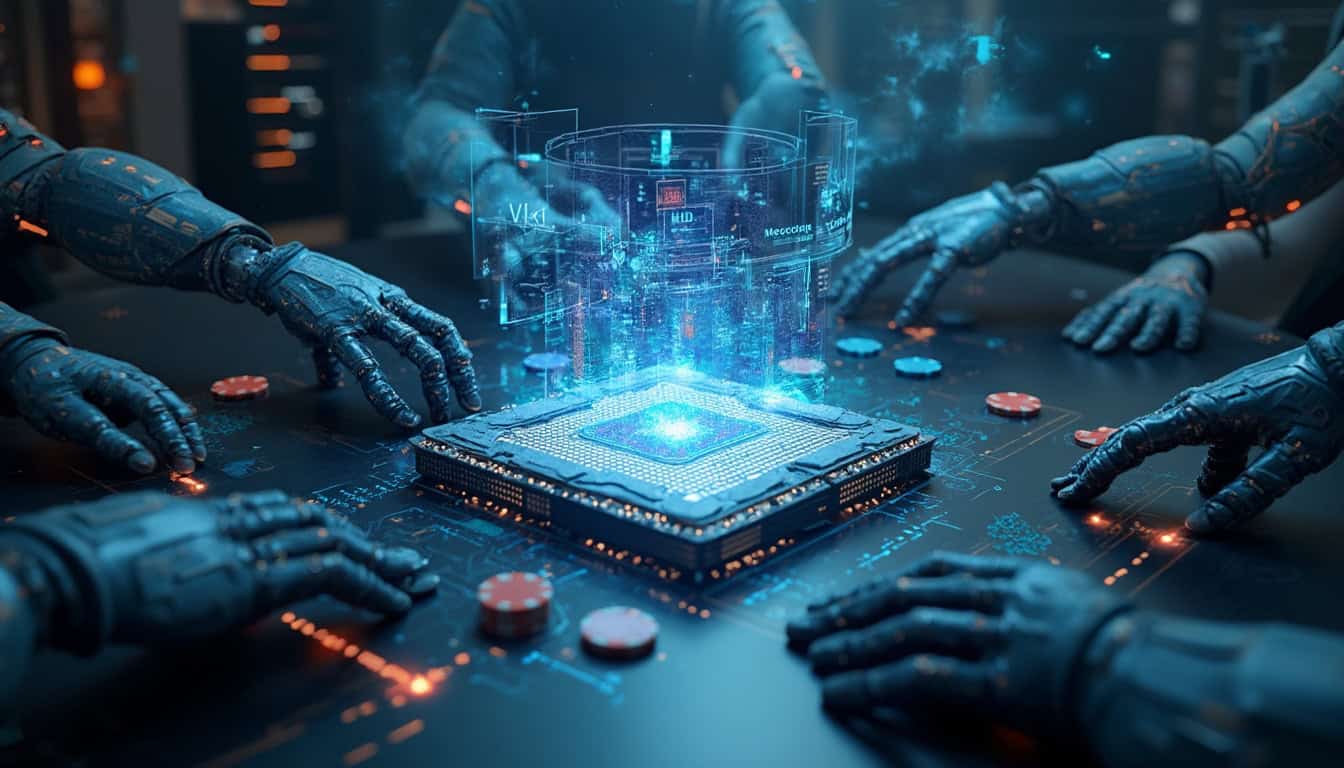
If you’re thinking, “This sounds like science fiction,” you’re not far off. But machine learning in poker is very real, and it’s reshaping the game in ways we’re still trying to wrap our heads around. Every hand, every decision, every fold—these machines learn, adapt, and improve. It’s like they’re constantly downloading updates while we’re stuck trying to remember if a flush beats a straight.
Spoiler alert- it does, but good luck getting one past these AI titans.
Of course, that is not all it is about-mostly flashy moves across the table. In reality, poker AI tools derive their real power from an ability to analyze really large bounds of data.
They don’t just play the game; they dissect it after having understood it at levels that are frankly disconcerting before wiping the floor with any human who dares challenge them. It is practically like being in a very high-stake poker game with Sherlock Holmes—except this Holmes never misses the cue, never overthinks, and definitely doesn’t fall for your card bluff.
The Human Factor – The Ethical Dilemma: Poker Cheats
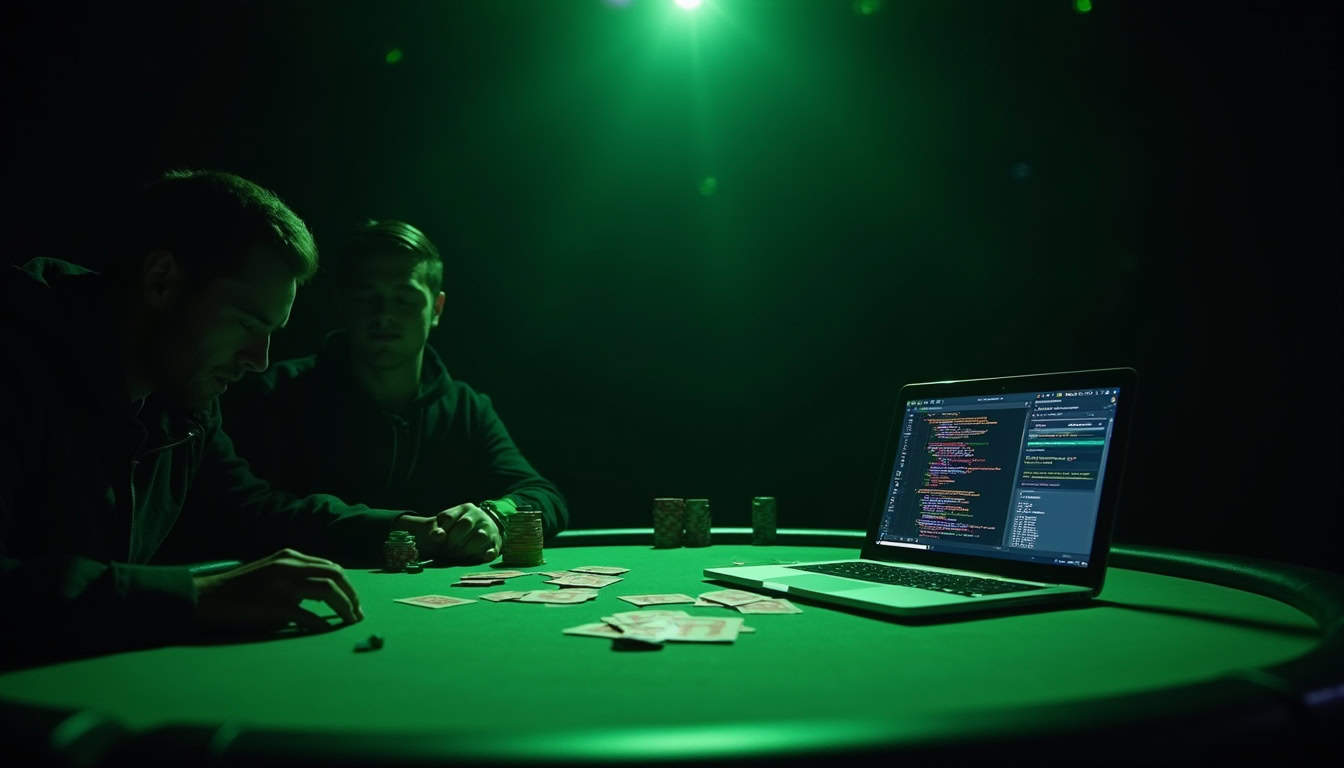
Now, however, the tricky—or the more morally gray—is this: Does the rise of Poker Hacks and this sort of Poker Cheat software take us into that gray area where people start to ask, “Is this even fair anymore?” When does using a poker bot stop being clever strategy and actually start out-and-out cheating on an opponent? More importantly, though, should we be letting these machines into our games in the first place?
It’s a question that doesn’t have an easy answer. On one hand, poker is a game of skill, and if someone can develop a tool to play better, isn’t that just part of the game? But on the other hand, when that tool is a highly sophisticated AI that can outmaneuver the best human players, it starts to feel like we’re stacking the deck against ourselves. Then there are the unanticipated consequences. The more that people resort to using AI to achieve an edge, the very nature of the game itself might shift. Whatever happened to the thrill of the bluff if you knew the opponent was a machine that has seen every trick in the book? What fun is it to outplay somebody that doesn’t even have a pulse?
Are We Doomed or Just Getting Started?
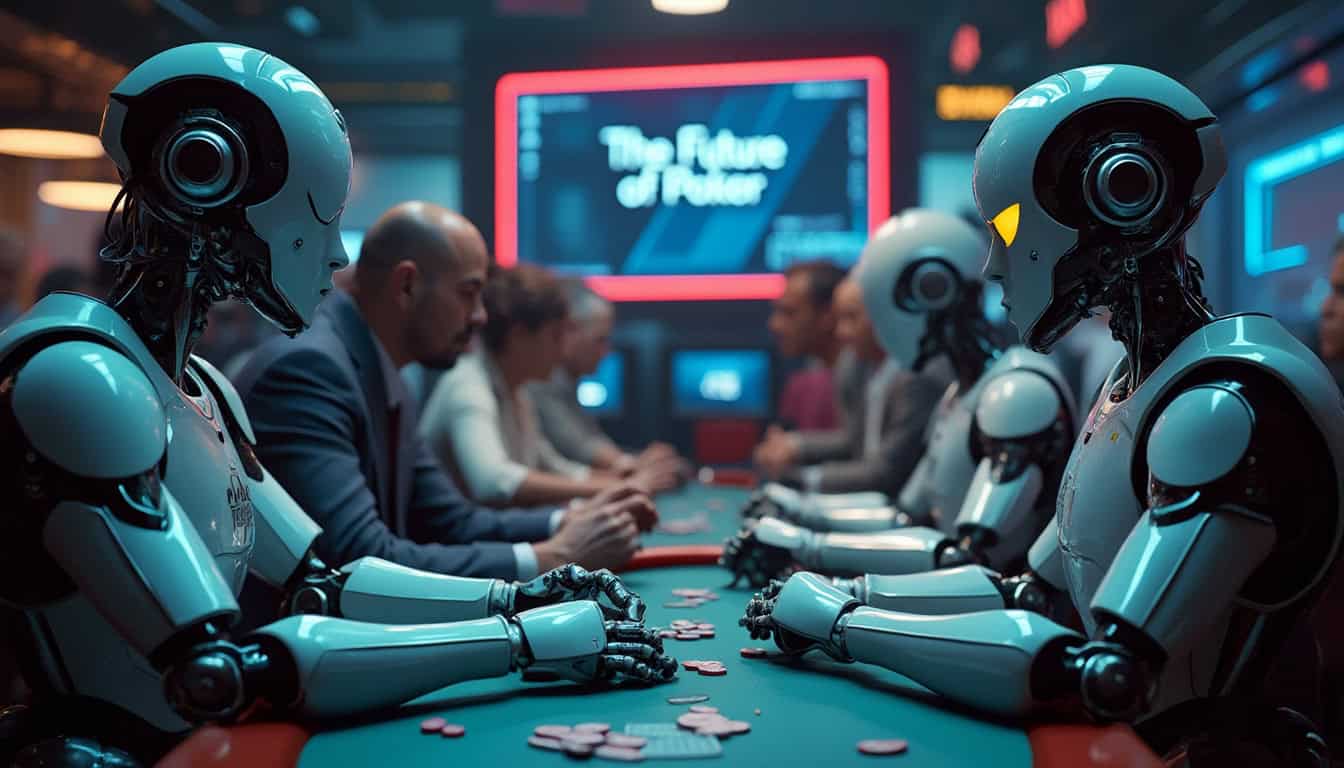
So where does that leave us? Is this the beginning of the end of poker as we know it, or merely the start of a new era? Hard to say. One thing we can rest assured of—poker AI software is here to stay and evolve. Now, will we, the lowly human players, rise to meet the challenge?. One thing is for certain, poker will never be the same. But perhaps that is just as well. This might be change that needs embracing: learning from the machines and finding new ways to keep the game interesting. At the end of the day, whether they spill their chips against a world champion or an ice-cold AI, poker — is still poker. And as long as there is a way to win — we will play. Until then, shuffle up and deal—just don’t be too surprised when the computer takes home the pot.
